The Queers and Comics conference was back in New York City for 2019 and what a time it was. The biennial LGBTQ cartoonists conference alternates between NYC and San Francisco, California. It plays host to queer cartoonists, comic writers, and artists. What distinguishes it from other conventions is how it also includes queer academic scholars, comic publishers, editors, and journalists. The conference may be based in the US, but the attendees and panelists hail from locations both domestic and international.
Jennifer Camper, noted cartoonist whose “irreverent, female, queer, and mongrel (Lebanese American)” work has appeared everywhere from The Advocate to Ms. to The Village Voice, founded the conference in 2015 because she “wanted to throw a party for queer cartoonists” according to the Queers and Comics origin story. Camper drew upon her memories of the LGBTQ writer’s conferences she attended in the 1990s in forming Queers & Comics to provide “the opportunity to create community, document history, and celebrate queer comics.”
Are you having some queer comic FOMO?
Wishing you’d been able to lurk the halls of the School of Visual Arts and take in all the lively and brilliantly queer comic panels and talks? Coming down from the high of being in attendance, while missing your queer comic compatriots? Artist Becky Hawkins, whose work includes the “1940’s lesbian superhero webcomic” SuperButch, has got you covered. Her detailed pen and ink drawings were done on the spot while attending various parts of the programming schedule, and bring to life some of the thoughtful, funny, perplexing, and all-around identity affirming moments of Queers and Comics 2019.
Pride month is right around the corner, and what better way to start your nerdy month of celebrations than with these fourteen fabulously queer comic con commentaries? When you’re through, you’ll probably want more Hawkins in your sequentially queer life, so check out her other excellent webcomic, French Toast Comix. You can also catch Hawkins at CAKE in Chicago this weekend, table 211 A.
Queers and Comics DAY 1
Any Resemblance is Necessary: The Whys of Queer First Person Autobiographical Comics panel
Featuring: KC Councilor, Jan Descartes, Robert Kirby, Breena Nuñez, and AK Summers, moderator.
The advice Hawkins curates in this comic is useful for all writers of memoir, but her transcribed note on how gender identity and drawing can be connected, as well as the particular need to tell one’s story in a non-verbal way should resonate with queer cartoonists especially.
Long-Form Projects panel
Featuring: Nicole Georges, Steve MacIsaac, Lee Marrs, Hazel Newlevant, and Eric Omer, moderated by Robert Kirby.
The Long-Form Queers and Comics discussion is packed with artistic advice as well, such as the battle-tested suggestion to ink your work with a terrible movie in the background. Inking pages at random following the completion of penciling is another of bit of wisdom. One artist makes the observation that short-form comics represent knowing the scope and shape of your project, while long-form work is more often a sense of striking out into the unknown.
This second Hawkins comic from the Long-Form panel mostly concerns the difficult process of editing your extended work.
Nicole Georges in conversation with Mariko Tamaki panel
Towards the end of the Queers and Comics programming for day one, Tamaki speaks of the need for the queer comics community to support itself when traditional publishing fails to promote them. She also highlights the importance of volunteering in your community to empower it, so it is better equipped to raise up queer voices.
Queers and Comics Day 2
Robot Love is Queer: Synthetic Bodies & Authentic Experiences panel
Featuring: Eric Alexander Arroyo, Blue Delliquanti, Lawrence Gullo, Hunter M, and Naomi Rubin, moderated by Kori Michele Handwerker.
One artist notes that robots and comics are both simplified in terms of features, allowing us to project our own emotions onto them. Another declares that Queer hedonism equals a way to stay sane in the 21st century. Now that is is just a t-shirt waiting to happen.
This second comic by Hawkins dramatizes the panelists discussing the empathy they often feel for our robot brethren. Who doesn’t wish they could have bought the Curiosity Rover a drink before it uttered it’s final technical transmission that amounted to, “my battery is low and it’s getting dark”?
Bears Butches and Boys: Representing Masculinity panel
Featuring: Cyril Denuet (CLX), Liuxing Johnston, Sam Orchard, Carlo Quispe, and Maximus Spragovsky, moderated by Bill Zanowitz.
This second Hawkins comic from the Masculinity panel dramatizes a cringe-worthy moment during the Q&A when an audience member uses their question opportunity to engage in a long rant promoting theories of evolutionary psychology. Hawkins explains the panel to me during the lunch break. She quipped that not even the Queers and Comics conference can escape the pontificating of those who’ve just finished reading Sex at Dawn: The Prehistoric Origins of Modern Sexuality.
Diane DiMassa in conversation with Jennifer Camper panel
Camper’s observation that mainstream culture is just catching up to queer culture in the 90s, along with DiMassa’s assertion that she wants her readers to be able to “eat one of my panels for lunch” are just a few stand-out moments from a discussion that fully engages the audience from start to finish.
Falling Through the Cracks: Finding Space for Trans Masculine Creators panel
Featuring: Morgan Boecher, Kou Chen, Jay Edidin, and Ajuan Mance, moderated by Dylan Edwards.
Space means a lot of things to different people. One panelist notes the need for differentiation between the stories of transmen and transwomen in the minds of a cisgender audience. Another wonders about how to take up the space that’s just starting to be made for trans masculine creators in a mindful way.
Humor in Comics – Whose Limits? panel
Featuring Mike Diana, Diane DiMassa, Carlo Quispe, and Sonya Saturday, moderated by Sara Lautman.
Humor is a central way of coping for these queer comic creators, something that helps them tackle their issues with homophobia, pop-culture, and politics as well as their own identity.
Drawing Queer Sex: Our Place in Erotic Comics panel
Featuring: Jon Cairns, Dave Davenport, Blue Delliquanti, KD Diamond, Kazimir Lee, and Jason A. Quest, moderated by Kori Michele Handwerker.
Hawkins notes that many of the creators talk about how drawing erotic comics helped them discover their own sexuality and identity, and that their coming out process is recorded in their earlier efforts.
One of the creators notes that the representations of his bisexuality in his work, namely authoring and drawing comics that sometimes depicted sex with women as well as sex with men, show a drop in page views when the sex is heterosexual.
A final, but important, note: when drawing sex comics, it’s important not to see the creator working too hard behind the curtain.
A tip of the hat to Justin Hall, programming director for the 2019 Queers and Comics conference, for organizing such a thought-provoking roster of panels.




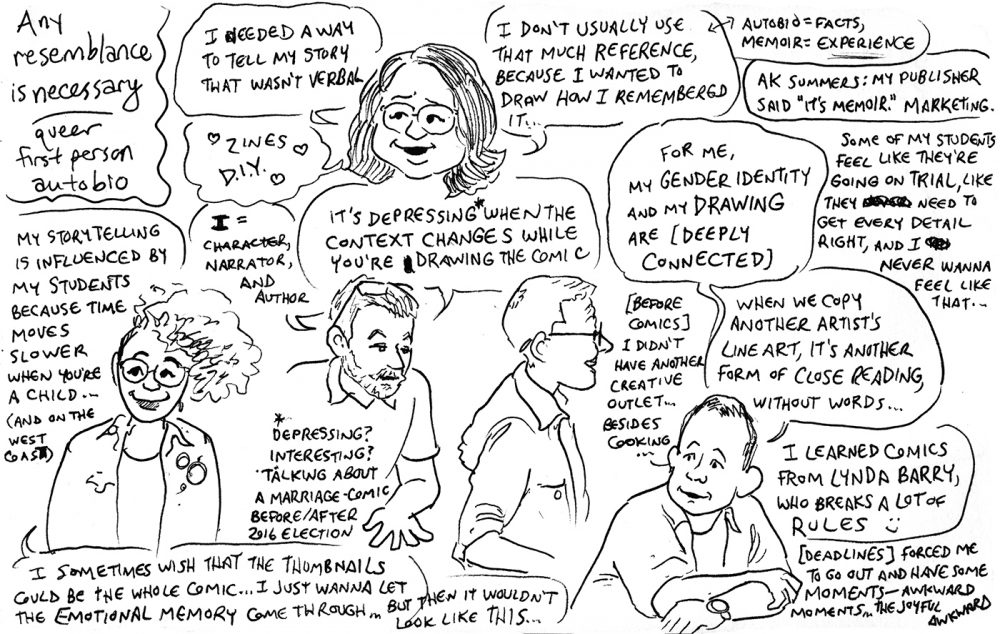
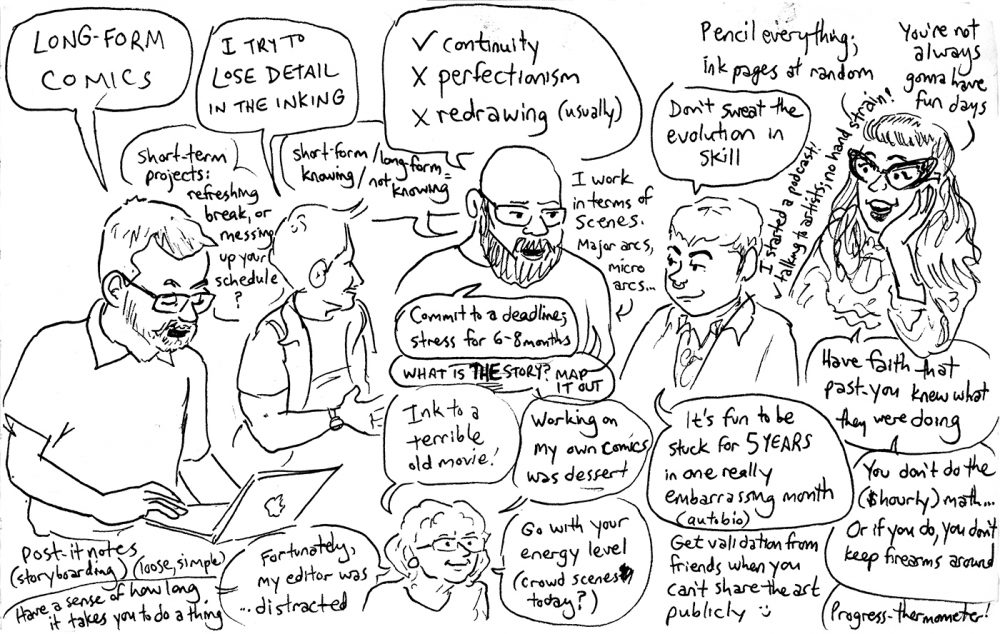
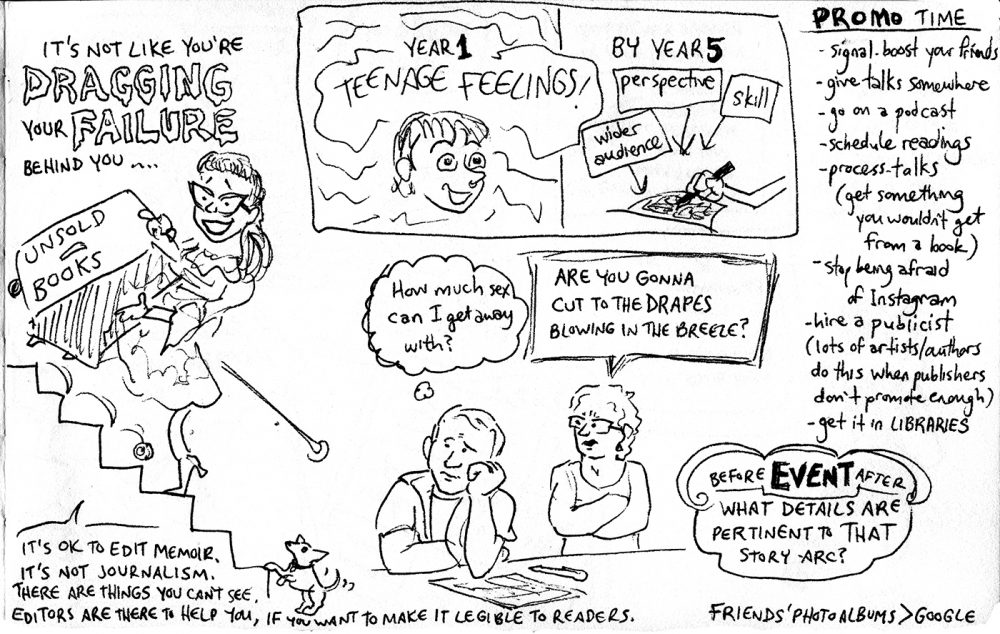
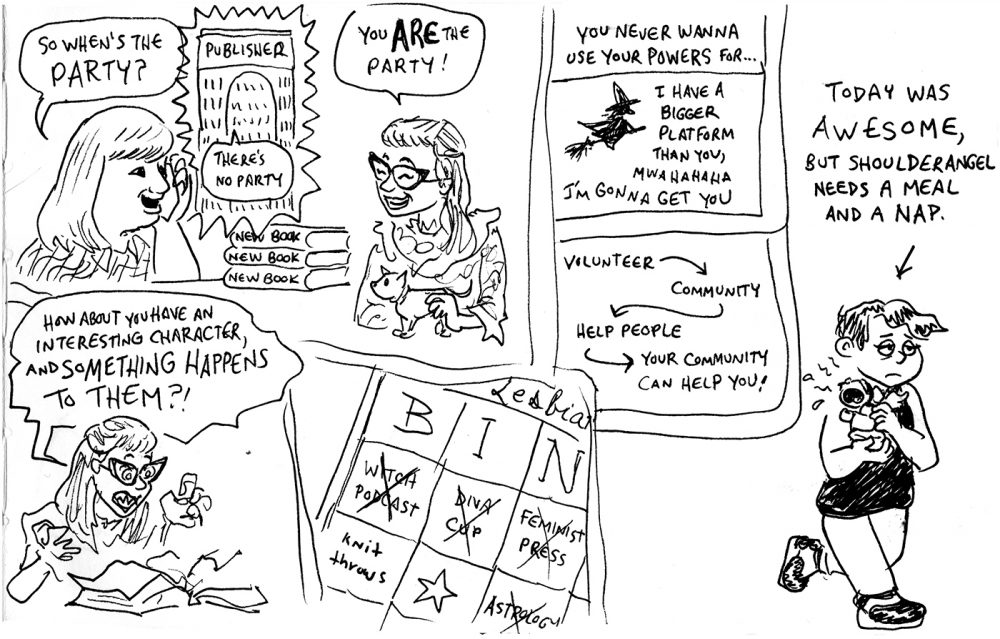
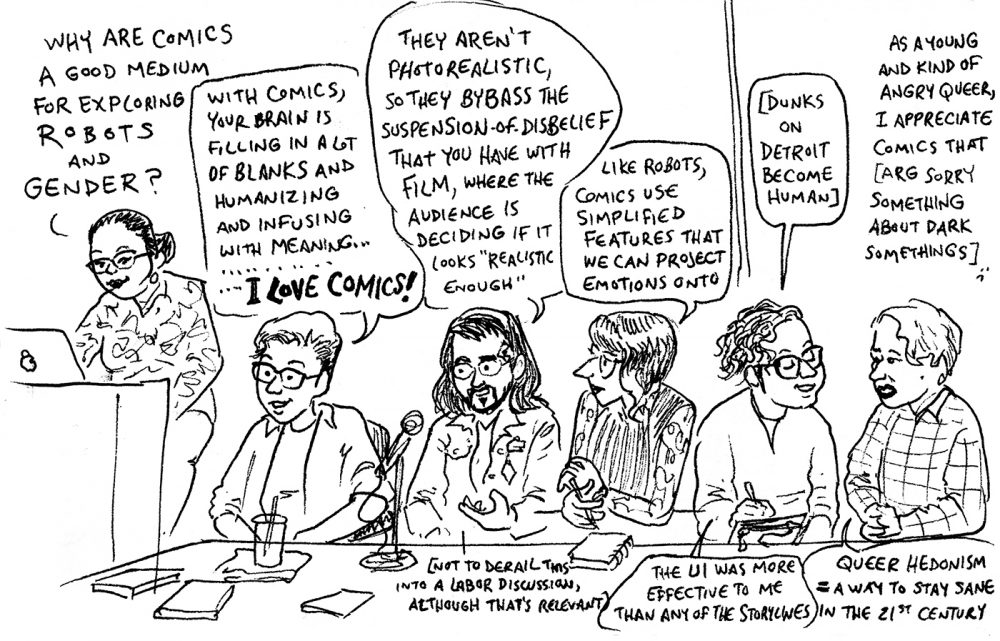
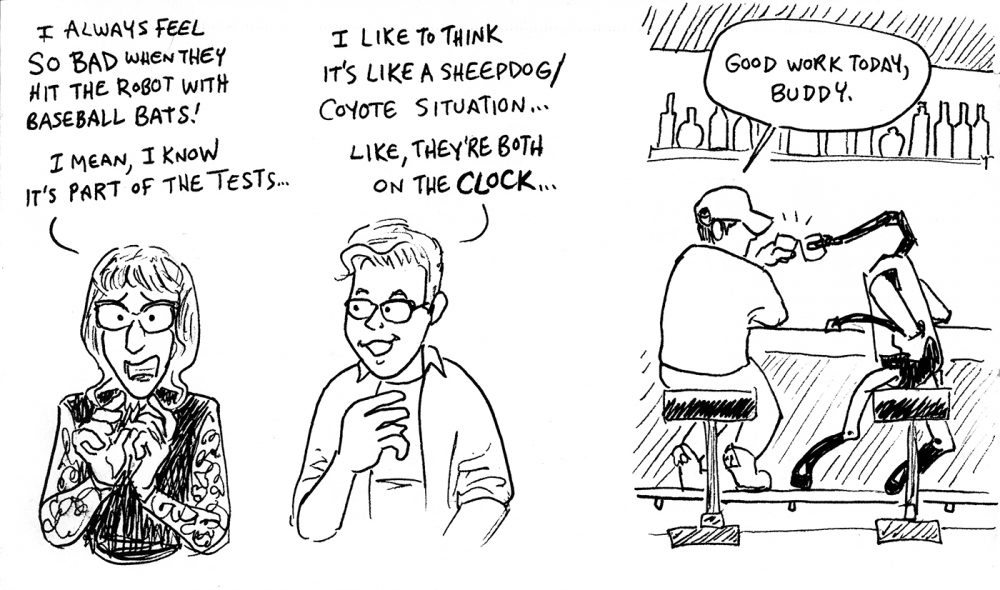
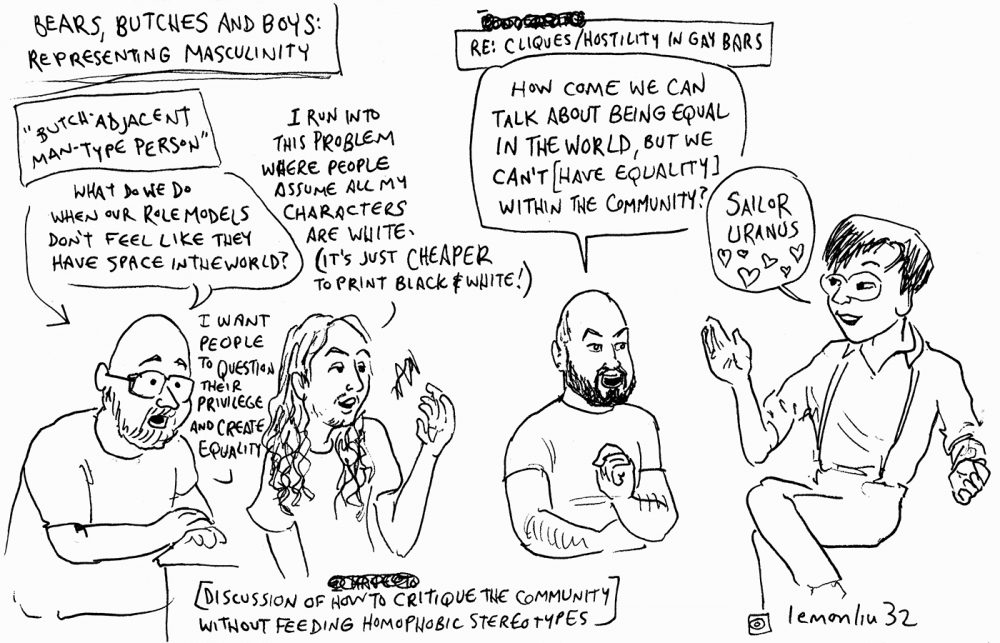
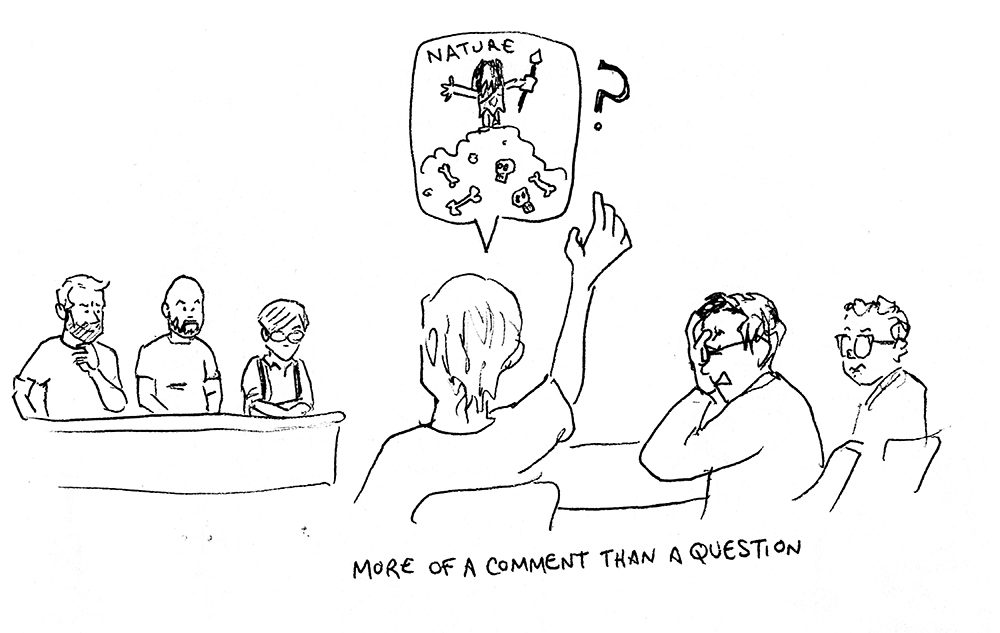
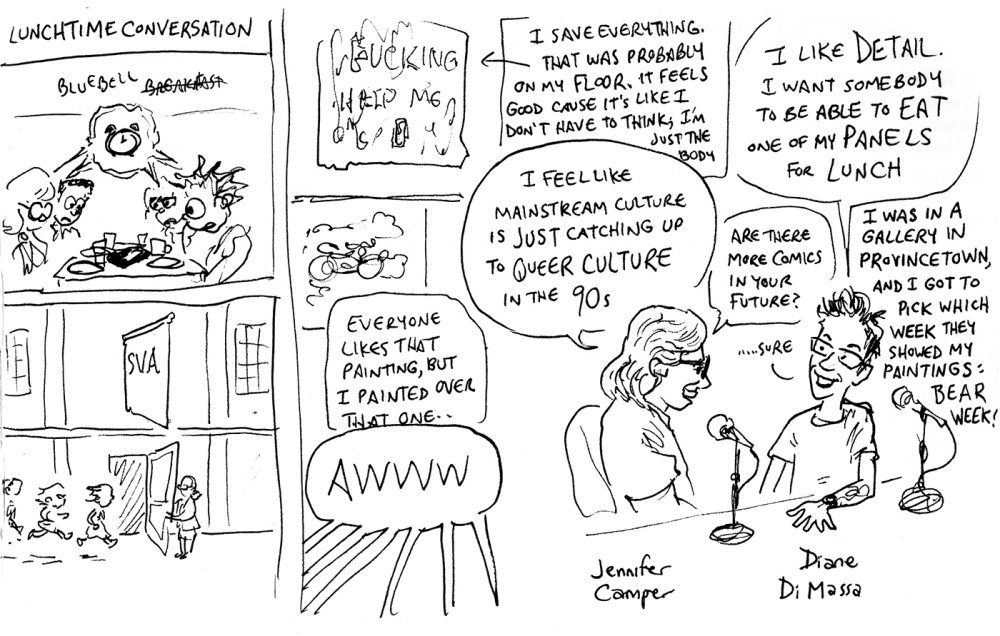
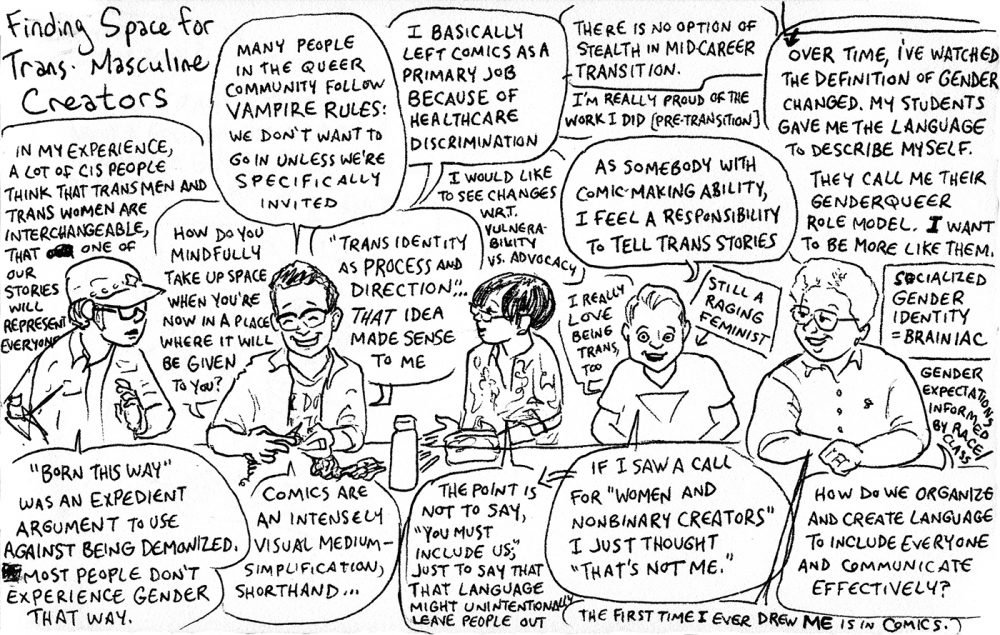
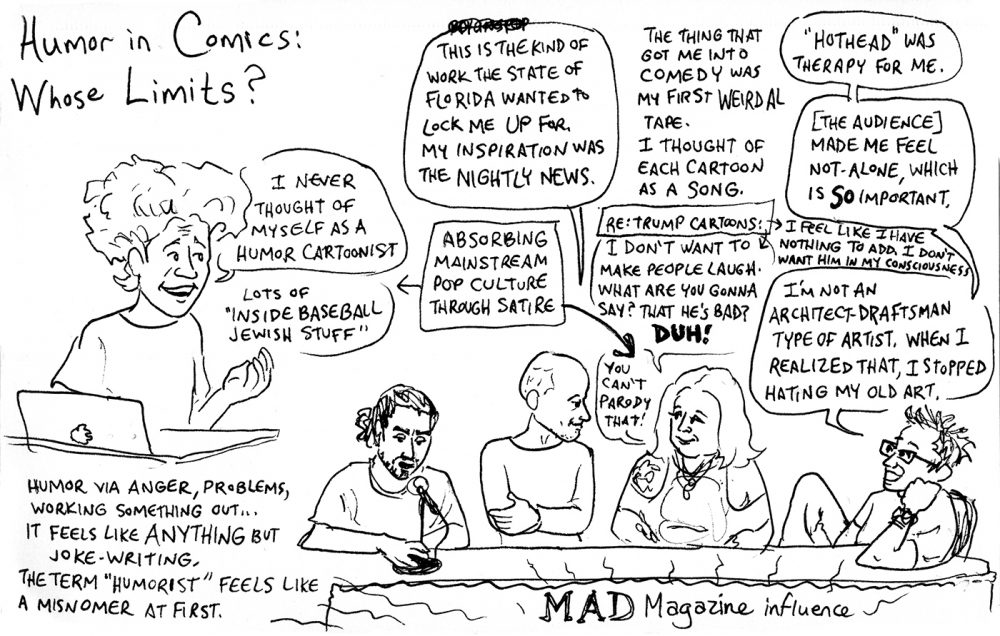
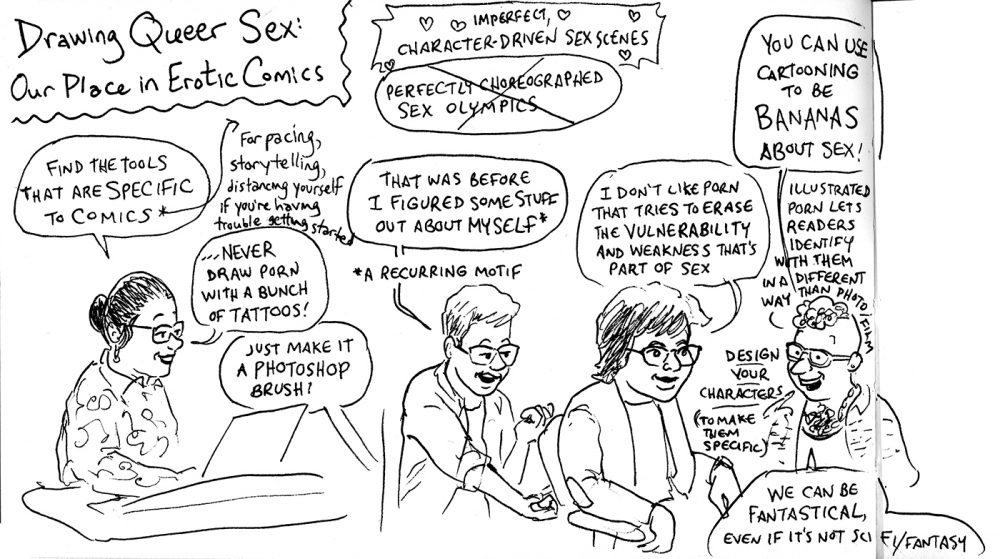
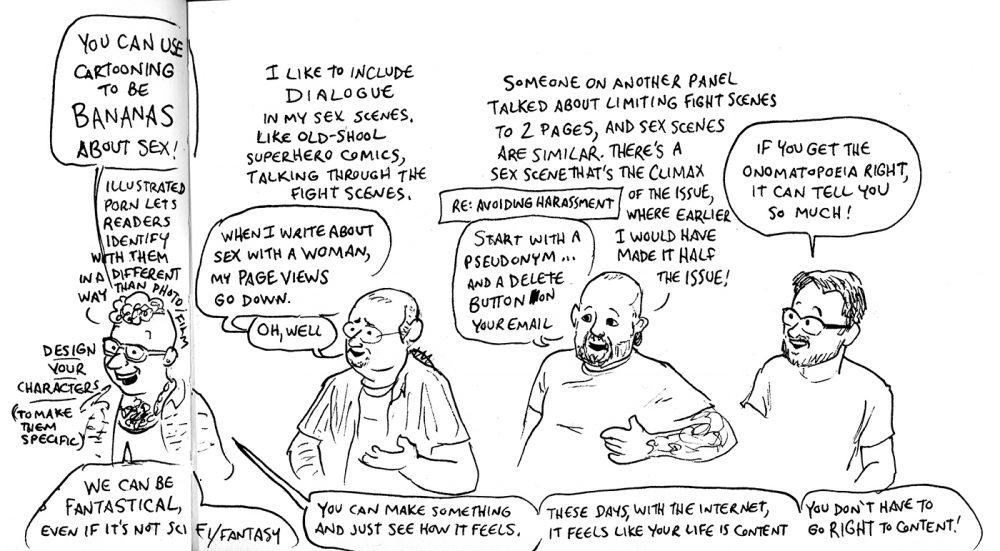
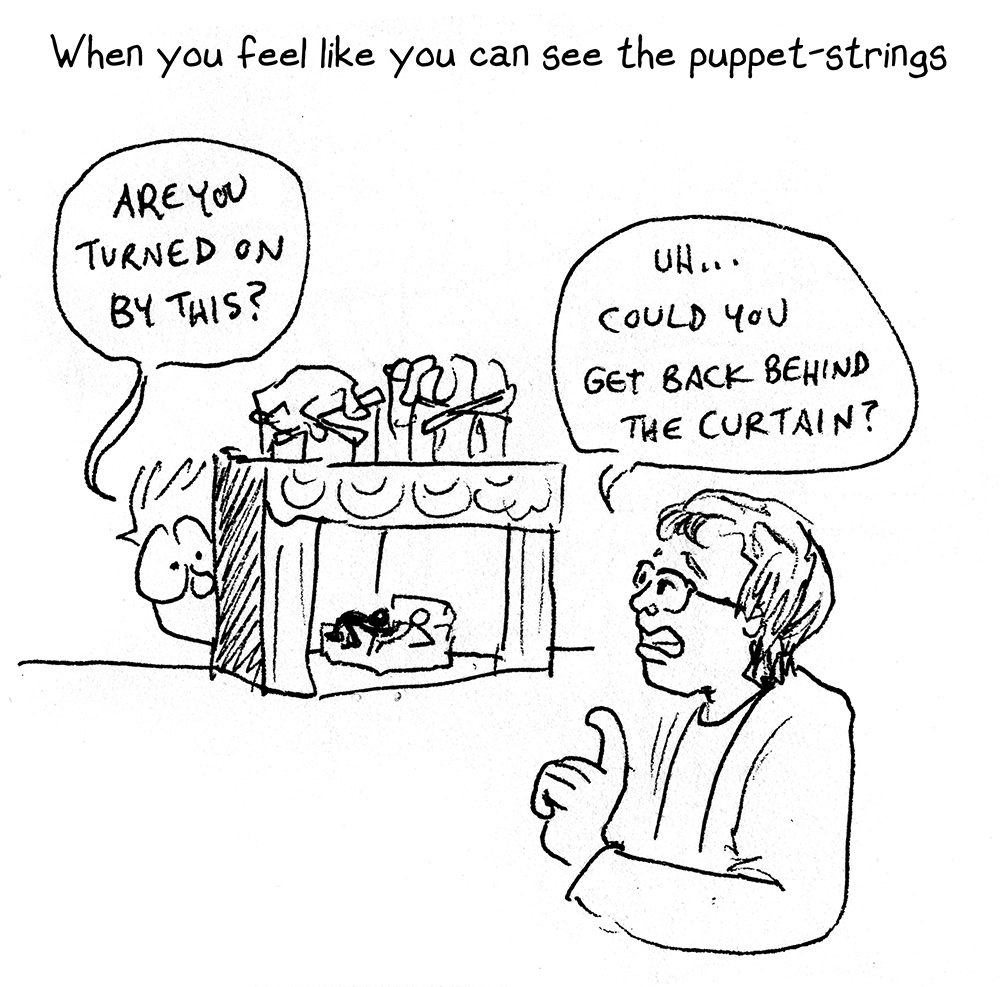
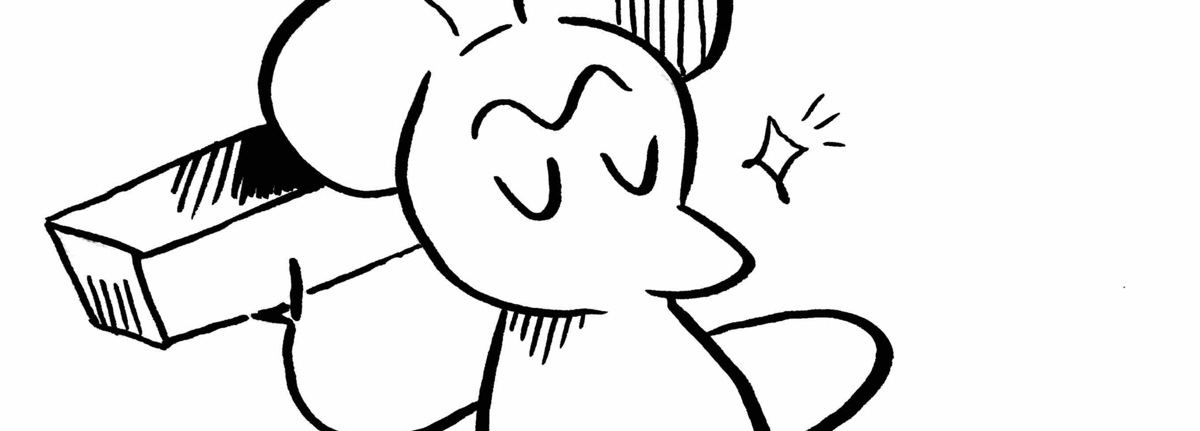
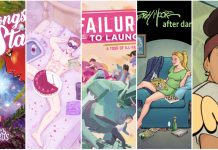
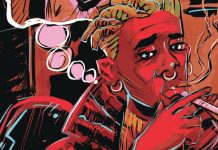


Comments are closed.